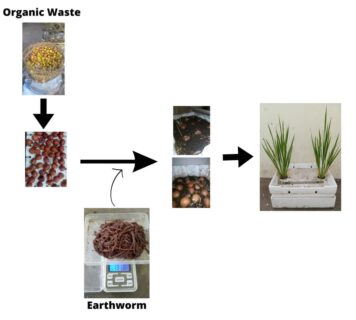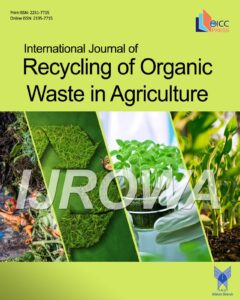Transforming organic waste into productive resources through vermicompost and hydroponics in rice agriculture: A review
Authors
Abstract
Purpose: Integrating vermicompost and hydroponics in rice agriculture presents an innovative and sustainable solution for transforming organic waste into valuable resources. This review explores the possible utilization of organic waste into productive resources through vermicompost and hydroponics in rice agriculture.
Method: A comprehensive literature review was conducted to investigate the potential use of vermicompost derived from organic waste for hydroponic rice agriculture. The available literature was analyzed to reveal and explore the various aspects of this application.
Results: The literature review reveals that the utilization of vermicompost derived from organic waste in hydroponic rice agriculture holds the potential to evolve into effective strategies for reducing, reusing, and recycling organic waste. Vermicompost decreases used inorganic fertilizers, with studies reporting up to 30% reductions. The application of vermicompost can enhance plant growth by approximately 15% to 30% and positively impact increasing specific nutrients in plants. Using vermicompost can also increase the average crop yield by about 5% to 25% compared to other organic materials.
Conclusion: This study found that integrating vermicompost and hydroponics represents a promising approach for transforming organic waste into productive resources. This integration allows organic waste to be effectively converted into nutrient-rich vermicompost and valuable growing medium in hydroponic systems. Scientific research has demonstrated the potential benefits of this approach, including improved nutrient availability, enhanced plant growth and yield, and reduced environmental impact. By combining the nutrient-rich properties of vermicompost with the precision and efficiency of hydroponic systems, farmers can achieve sustainable and resource-efficient crop production.
Highlights
• Earthworms effectively decompose organic waste into plant-available nutrients.
• Vermicompost significantly contributed to the growth and productivity of plants.
• Utilize vermicompost and hydroponics for enhanced agricultural output and eco impact.
• The integration of vermicompost and hydroponics in rice farming is innovative.
• Vermicompost from organic waste can be used as a planting medium in rice hydroponics.





